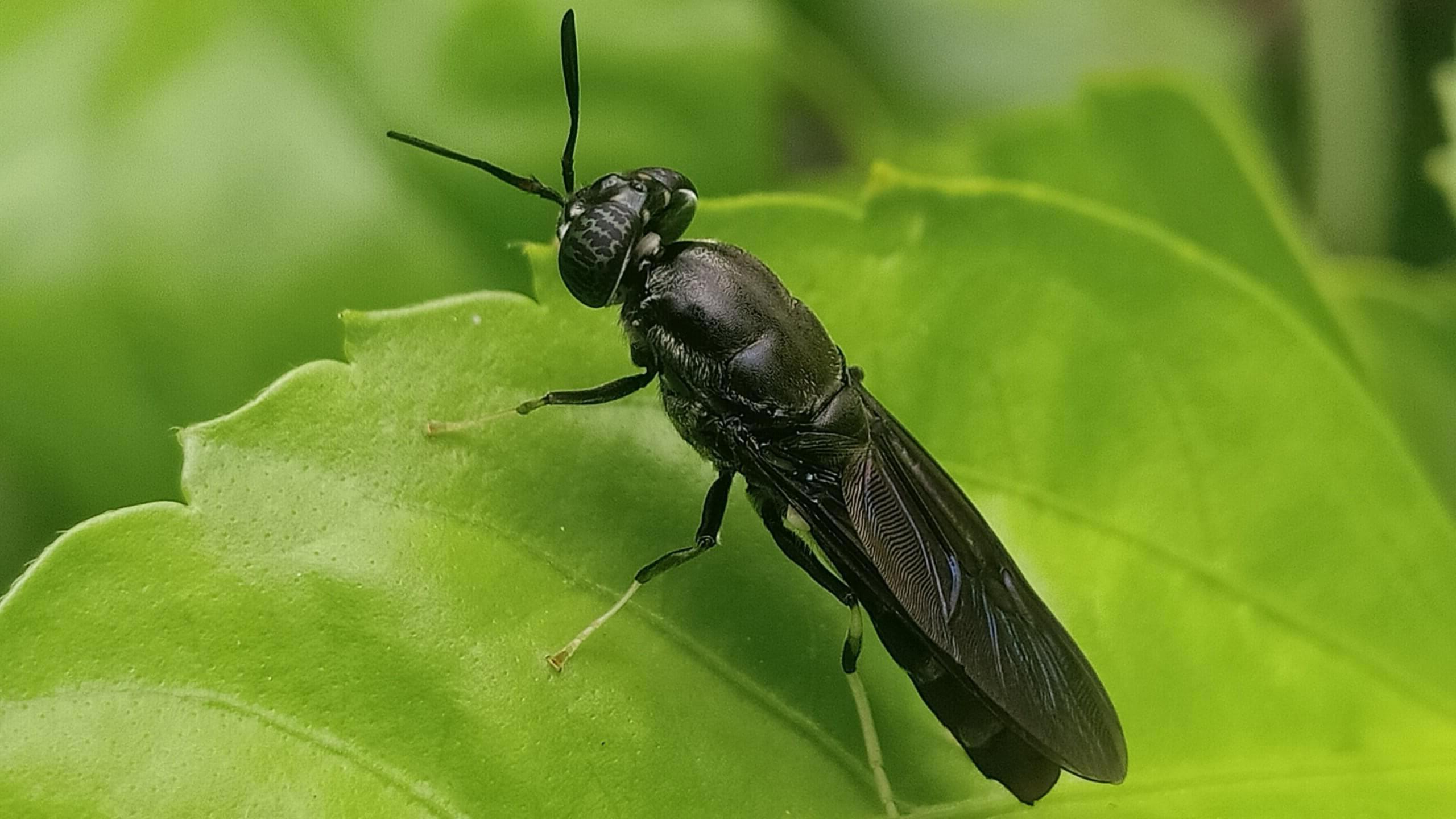
Image: Black soldier fly Hermetia illucens
Gene family diversification in the black soldier fly
Supervisor: Professor Chris Jiggins
Co-supervisor: Florian Hollfelder
The black solder fly feeds on organic waste biomass, such as food, agricultural and manure wastes, BSF larvae are capable of converting waste biomass into a sustainable and renewable source of sought-after nutrients – BSF larvae are rich in lipids and proteins, and BSF larvae-derived meals are effective feedstuffs for a range of commonly farmed livestock species ranging from poultry to farmed fish. We have already obtained a high quality assembly of the BSF genome. We have shown an excess of gene family diversification in the black soldier fly associated with its generalist ecology.
Type of work
The student will conduct high throughput microfluidic screens of black soldier fly libraries and sequence positive clones. Bioinformatic analysis will identify gene family expansions relative to other species and test for enhanced rates of molecular evolution. Genes will be cloned and expressed to test for enzymatic activity and identify divergence in function.
Importance of the area of research concerned
Gene duplication and subsequent functional diversification is an important process in evolution but there are not many good examples where the process is well understood. Here we will combine cutting edge microfluidics and enzyme biochemistry to study how enzymes have diversified in function in the black soldier fly. This approach offers potential to explore functional diversification in gene sequence at an unprecedented resolution. Gene duplication and divergence in function likely played a role in allowing this species to become such an ecological generalist.
References
T. N. Generalovic et al., A high-quality, chromosome-level genome assembly of the Black Soldier Fly (Hermetia illucens L.), G3 Genes|Genomes|Genetics, vol. 11, no. 5, p. jkab085, May 2021, doi: 10.1093/g3journal/jkab085.
M. Gantz, S. Neun, E. J. Medcalf, L. D. van Vliet, and F. Hollfelder, Ultrahigh-Throughput Enzyme Engineering and Discovery in In Vitro Compartments, Chem. Rev., vol. 123, no. 9, pp. 5571–5611, May 2023, doi: 10.1021/acs.chemrev.2c00910.
